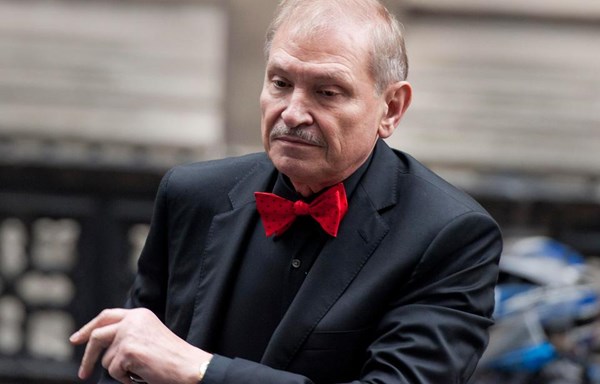Putin’s critic found dead in London
Nikolai Glushkov, a Russian businessman, former deputy director of Aeroflot, and a staunch critic of Russian President Vladimir Putin’s government was found dead in his London home on March 12. London police have classified his death as unexplained.
Although his name is not mentioned in the police department’s statement, the BBC confirms that he is indeed the person discovered dead. Glushkov was a former associate of Boris Berezovsky, another steadfast critic of Putin who had also died in England five years ago.
The report about the "unexplained" death of a man in his 60s appeared on the London police website on March 13th. According to the report, a call with information that a body was found at a residential address in Clarence Avenue, Kingston, was made on the evening of March 12. The name of the deceased was not provided in the message but it was indicated that his immediate relatives have already been informed of the incident.
"The death is currently being treated as unexplained. If there is a change in the status of the investigation, an update will be provided," the report said. The police stressed that "there is no evidence to suggest a link to the incident in Salisbury,” referring to the poisoning of former GRU (Russia's Main Intelligence Directorate) Colonel Sergei Skripal. Nevertheless, the Counter-Terrorism task force joined the investigation into the death of the entrepreneur, just as they had in the Skripal case.
Information that Nikolai Glushkov died in London, was confirmed by his lawyer Andrei Borovkov, Interfax reports. "I can confirm that Glushkov passed away.” Borovkov claimed not to know the specifics of the time, circumstances or cause of death.
According to Kommersant newspaper, Glushkov’s friends reported that his body was discovered by his daughter Natalia in an apartment in the suburbs of London. The newspaper’s sources say that there were marks of strangulation on the neck of the deceased but that it is impossible yet to determine whether it was murder or suicide.
The owner of Vedomosti newspaper, Demyan Kudryavtsev, who previously reported about Glushkov's death, told Interfax that he did not know all the details but he knew that Glushkov did not hang himself.
In March 2013, Glushkov's former partner, Boris Berezovsky was found dead in his house near London. The most likely cause at the time was suicide. The police discovered strangulation marks while examining the body. They did not rule out the possible involvement of an unknown party in Berezovsky's death.
Glushkov had never believed that Berezovsky died voluntarily. "Boris was strangled. Either he did it himself, or with the help of someone. But I do not think it was a suicide," The Guardian quoted him as saying in 2013. Then, Glushkov said that too many Russian emigrants had died in Britain "under strange circumstances."
Glushkov had been a long-time business partner of Berezovsky. They were both defendants in the 1999 Aeroflot embezzlement trial and they both spent several years in pre-trial detention centers. In March 2017, he was convicted in absentia by a Russian court to eight years in prison for stealing $123 million. Glushkov escaped punishment by remaining in Britain where he had been granted political asylum in 2010 just as Berezovsky had been.
Glushkov's death came after an incident in Salisbury on March 4 when former GRU Colonel Sergei Skripal and his daughter were found severely poisoned. In 2010, he and several other Russian citizens accused of state treason were exchanged for a group of Russian spies detained in the United States. One of the most likely possibilities outlined by Skripal case investigators was that Russia was involved in his poisoning.
British Prime Minister Teresa May revealed earlier that Skripal was poisoned with the nerve agent "Novichok" that was developed by Russia in violation of the treaty on the prohibition of chemical weapons. One of the developers of Novichok, Vil Mirzayavnov, who emigrated to the United States in the 1990s, also said that Russian special services may have been involved in the incident. Russia denied those accusations.
